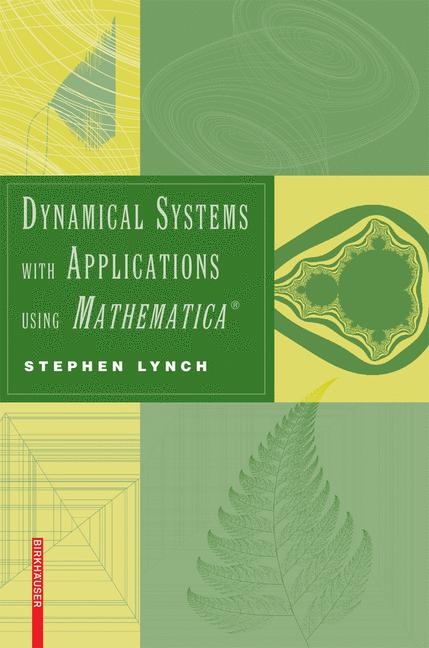Dynamical Systems with Applications using Mathematica®
Seiten
2007
|
2007 ed.
Birkhauser Boston Inc (Verlag)
978-0-8176-4482-6 (ISBN)
Birkhauser Boston Inc (Verlag)
978-0-8176-4482-6 (ISBN)
- Titel erscheint in neuer Auflage
- Artikel merken
Zu diesem Artikel existiert eine Nachauflage
This book provides an introduction to the theory of dynamical systems with the aid of the Mathematica® computer algebra package. The book has a very hands-on approach and takes the reader from basic theory to recently published research material. Emphasized throughout are numerous applications to biology, chemical kinetics, economics, electronics, epidemiology, nonlinear optics, mechanics, population dynamics, and neural networks. Theorems and proofs are kept to a minimum. The first section deals with continuous systems using ordinary differential equations, while the second part is devoted to the study of discrete dynamical systems.
Preface
A Tutorial Introduction to Mathematica
Differential Equations
Planar Systems
Interacting Species
Limit Cycles
Hamiltonian Systems, Lyapunov Functions, and Stability
Bifurcation Theory
Three-Dimensional Autonomous Systems and Chaos
Poincaré Maps and Nonautonomous Systems in the Plane
Local and Global Bifurcations
The Second Part of David Hilbert's Sixteenth Problem
Linear Discrete Dynamical Systems
Nonlinear Discrete Dynamical Systems
Complex Iterative Maps
Electromagnetic Waves and Optical Resonators
Fractals and Multifractals
Chaos Control and Synchronization
Neural Networks
Examination-Type Questions
Solutions to Exercises
References
Mathematica Program Index
Index
| Erscheint lt. Verlag | 1.10.2007 |
|---|---|
| Zusatzinfo | 7 Tables, black and white; XV, 484 p. |
| Verlagsort | Secaucus |
| Sprache | englisch |
| Maße | 155 x 235 mm |
| Gewicht | 765 g |
| Themenwelt | Mathematik / Informatik ► Mathematik ► Analysis |
| ISBN-10 | 0-8176-4482-2 / 0817644822 |
| ISBN-13 | 978-0-8176-4482-6 / 9780817644826 |
| Zustand | Neuware |
| Informationen gemäß Produktsicherheitsverordnung (GPSR) | |
| Haben Sie eine Frage zum Produkt? |
Mehr entdecken
aus dem Bereich
aus dem Bereich
Buch | Softcover (2024)
De Gruyter Oldenbourg (Verlag)
59,95 €
Buch | Softcover (2024)
De Gruyter Oldenbourg (Verlag)
59,95 €
Festigkeits- und Verformungslehre, Baudynamik, Wärmeübertragung, …
Buch | Hardcover (2025)
De Gruyter Oldenbourg (Verlag)
89,95 €





